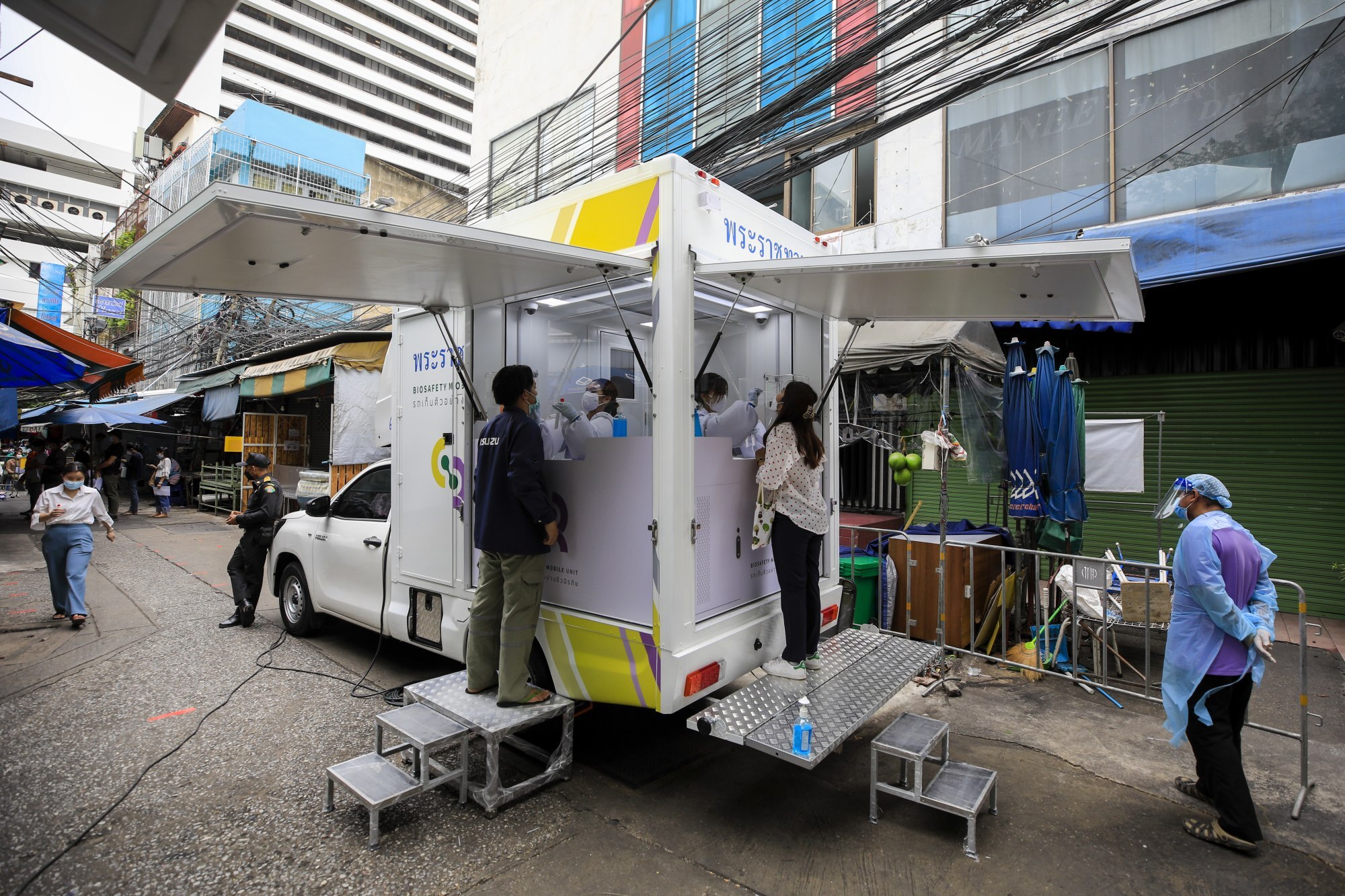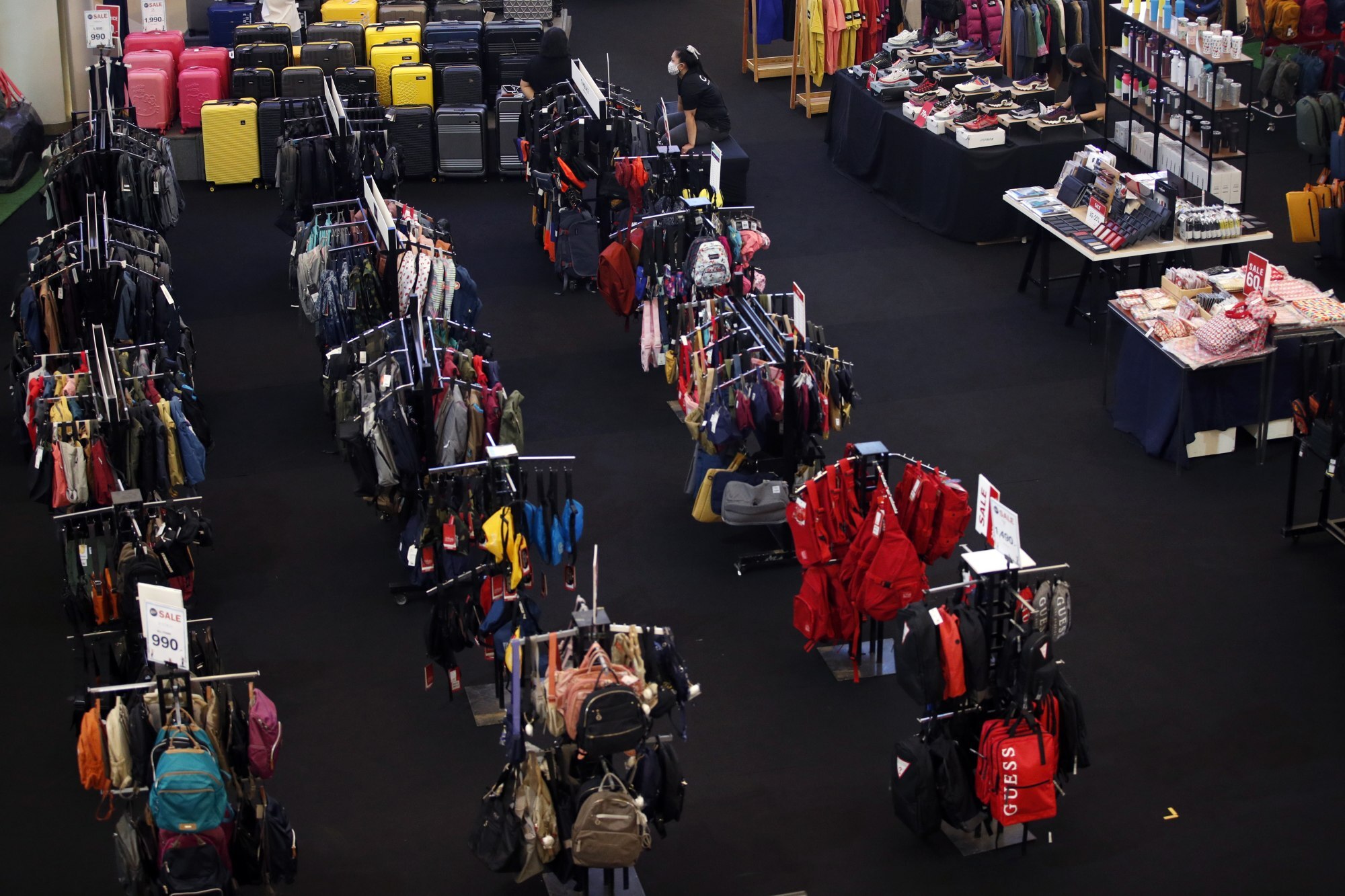The IMF has predicted GDP growth of 2.6 per cent for the kingdom this year, but expects the road forward to be sluggish and uneven As Thailand's third wave drags on amid a sputtering vaccination programme, experts and observers are uncertain what will drive growth

Thai health officials collect samples during a community nasal swab test drive at a local street market in Bangkok, Thailand. Photo: EPA
Thailand is pinning its hopes of economic rehabilitation on
, with the July reopening of the resort island of Phuket set to kick things off by allowing vaccinated travellers to skip quarantine. It is also considering implementing this quarantine policy in other provinces, although observers such as Pavida Pananond, a lecturer at Thammasat University's department of international business, warned that post-pandemic tourism might not be the same as what had come before."This government's subpar management of the pandemic, especially on vaccine procurement and distribution, will slow down the return to normalcy, which then leads to irretrievable economic opportunity costs for Thailand," she said.
Parliament on Wednesday passed a bill allowing the government to borrow US$16 billion to support the public health sector as it continues to fight the third wave. Lawmakers had earlier approved a US$4.5 billion stimulus package that included cash handouts and subsidies aimed at increasing domestic spending, which in turn could boost the economy as well as small and medium-sized enterprises (SMEs).
But Pavida said the stimulus package would not trickle down to SMEs, which were in need of cash to survive. "[SME loans] remain dependent on bank decisions and with the Thai economy remaining in intensive care, it is hard for them to convince banks of their financial viability, leading to a vicious cycle that makes it even harder for SMEs to access [funds]," she said.
Saengchai Theerakulwanich, president of the Thai SMEs federation, said companies with annual revenue of no more than 1.8 million baht (US$58,000), had the most difficulties accessing loans, even when they requested moderate amounts – usually below 5 million baht.
Though banks have issued loan packages specifically for SMEs, Saengchai said larger businesses were usually prioritised. "There are about 3.1 million SMEs in Thailand. I can't say how many of them will be left after the pandemic ends," he said.

Salespeople wait for customers at a deserted mall in Bangkok, Thailand, on June 7. Photo: EPA
While SMEs in the hospitality sector have been hard hit as tourism revenues dissipated, those in retail have also struggled to secure loans.
Natawaj Puthasiriwat, 60, said his request for a loan of 500,000 baht at a commercial bank was turned down. He owns a clothing store at Bangkok's Platinum wholesale mall, where local and international cloth vendors often flocked in search of the best deals. He used to earn between 500,000 baht to 1 million baht a month, but now he is struggling to pay his 20,000 baht monthly rent – a rate Platinum has subsidised to help vendors that has been reduced from the usual 100,000 baht a month.
Observers and experts have questioned how Thailand's economic growth will be driven in the short term as well as in the post-pandemic future.
Suphan Mongkolsuthree, president of the Federation of Thai Industries, said the body had proposed that the government increase funds in the co-payment subsidy scheme for food, drink and general goods so as to double domestic spending this year.
The federation has ordered 300,000 doses of Sinopharm from Thailand's Chulabhorn Royal Academy university, which will import about 5 million to 6 million doses in the coming months. Those jabs would be distributed among workers in the industrial sector and paid for by business owners who are members of the body, Suphan said.
Pichai Naripthaphan, deputy leader of the opposition Pheu Thai party and former deputy finance minister, said the economic damage caused by Covid-19 "meant new businesses cannot start".















